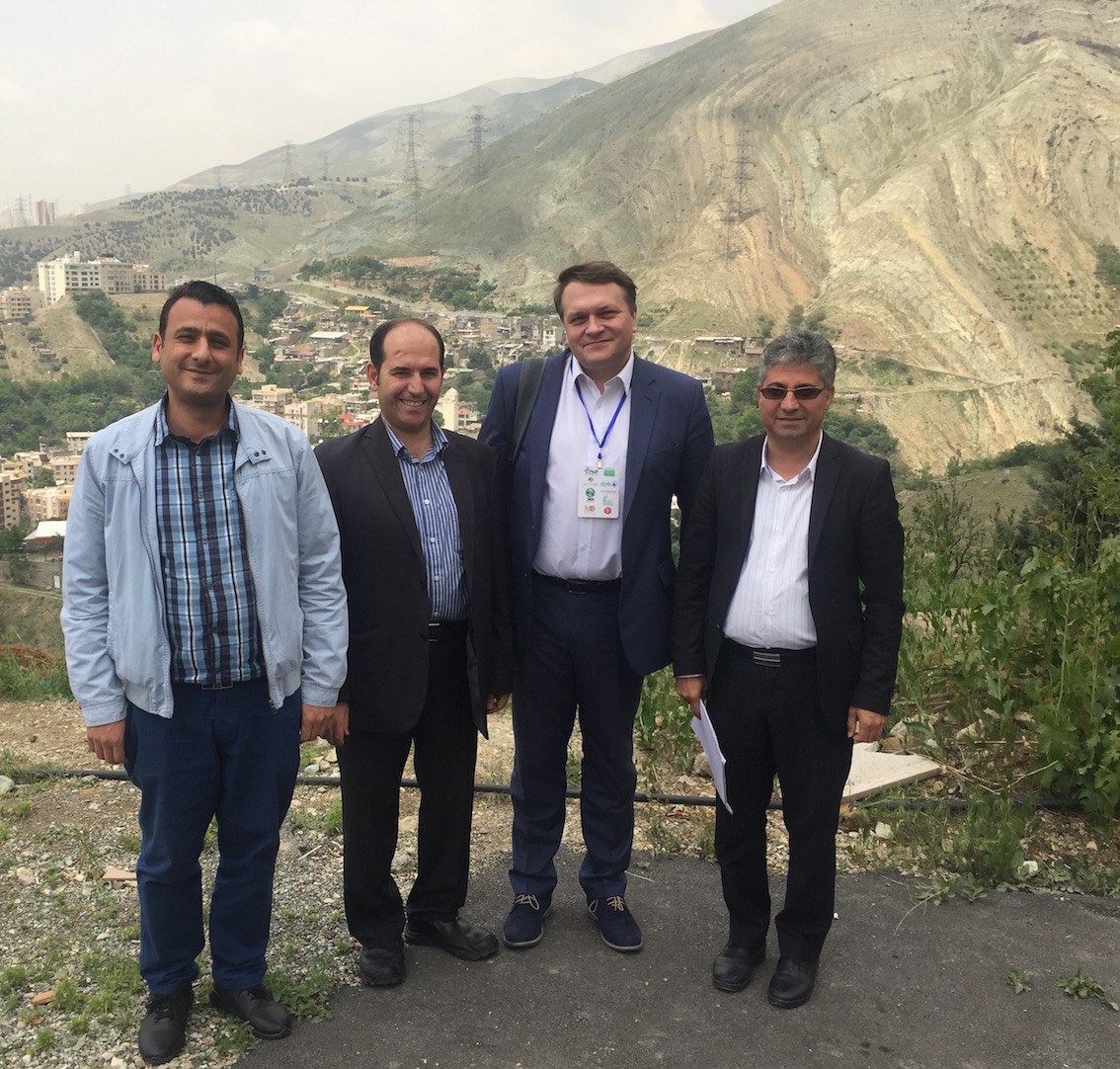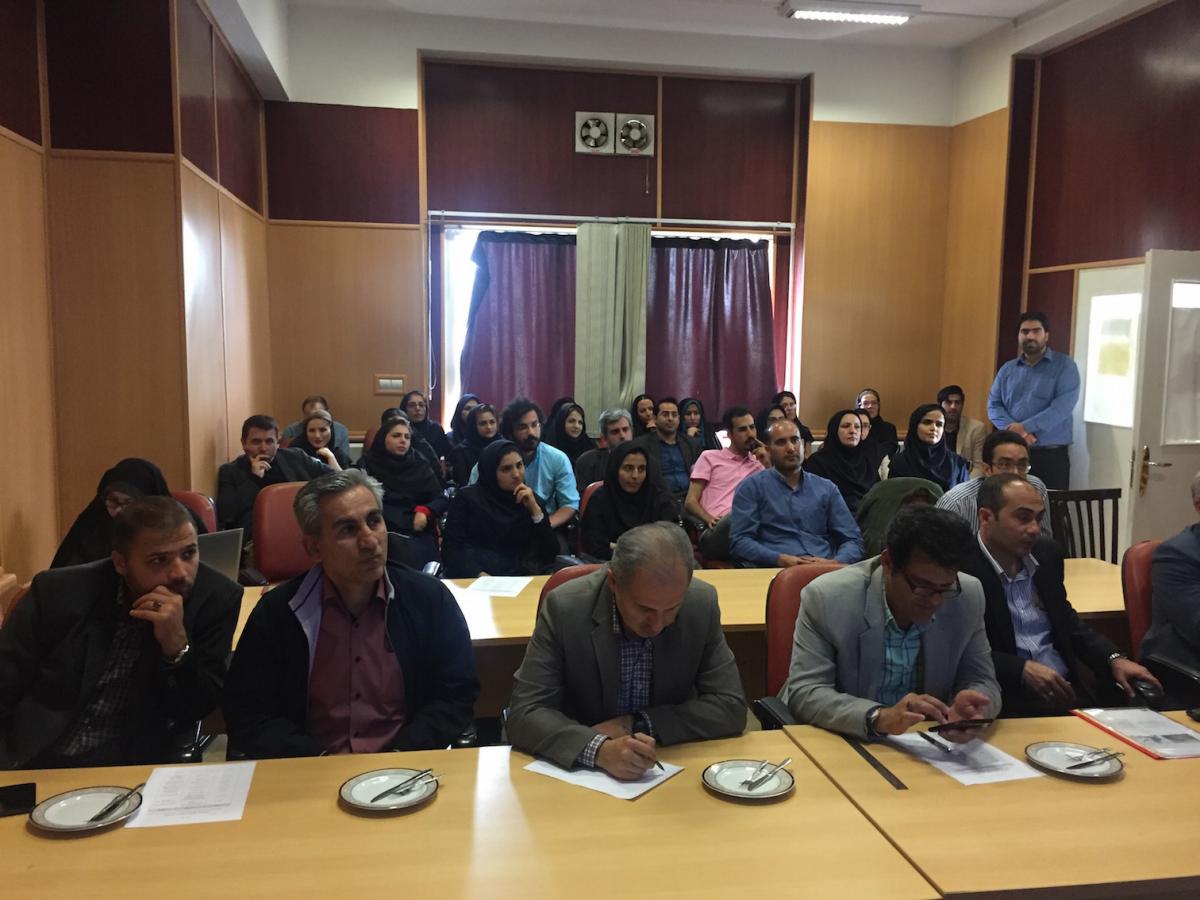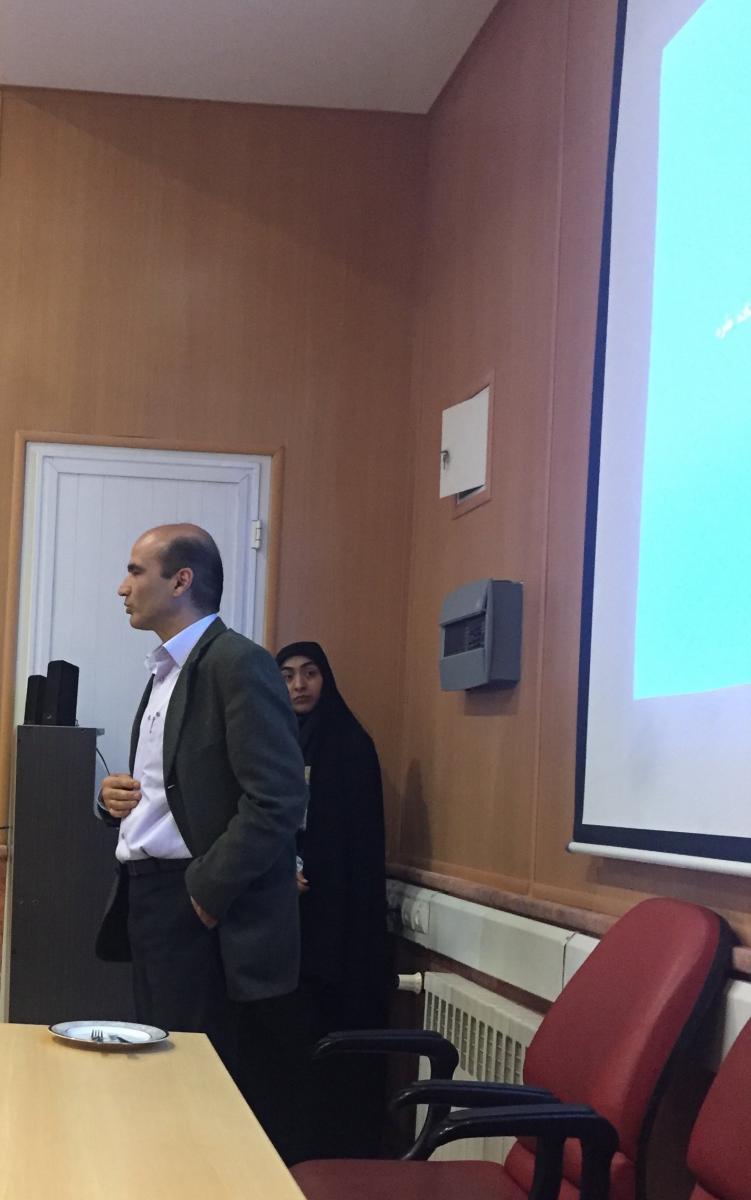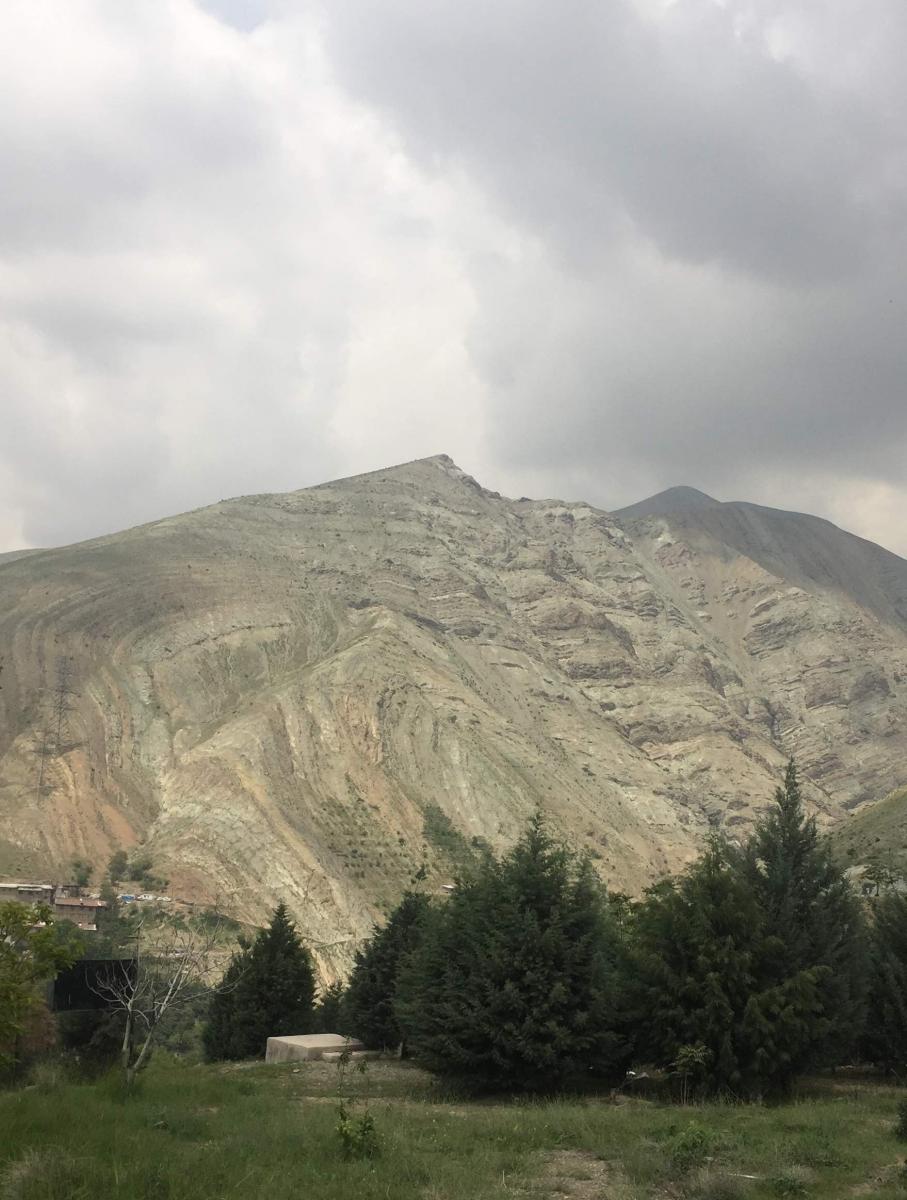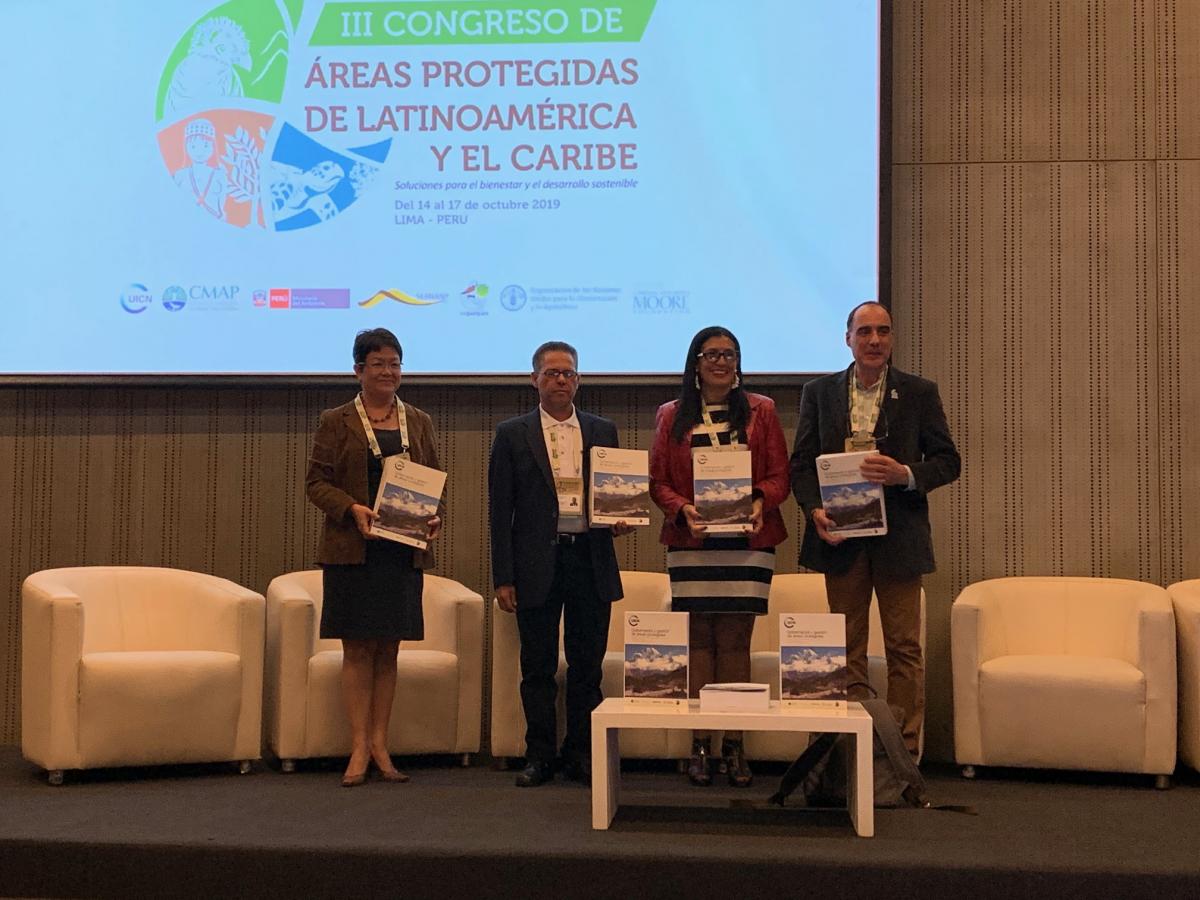Conservation Optimism in Iran
Aleksey Zavarzin IUCN CEC Regional Vice Chair for Eastern Europe and Central Asia meets CEC members from Iran
On May 13th 2018, I had the privilege of visiting the Environmental Sciences Research Institute (ESRI) of Shahid Beheshti University in Tehran, Iran, to meet Iranian CEC members and take part in the Seminar on Participatory Conservation of the Institute. Beautiful late spring weather, gorgeous view of neighboring mountains coupled with the overwhelming hospitality and openness of Iranian colleagues definitely made that day for me.
About noon, I was picked by IUCN CEC members, Dr. Hadi Veisi and Dr. Hossein Mahmoodi at the reception of the 15th Iranian Genetics Society Congress and taken to the modern, green and nicely looking campus of the Shahid Beheshti University. Crowds of enthusiastic students around, buildings at the foothills of mountains and delicious lunch at the cafeteria were the start of my acquaintance with the University. With the help of my guides I was introduced to a number of professors from different schools – all being friendly and open, speaking perfect English, having their views and ideas and being experienced in collaborative projects aimed at practical changes for the better.
The SBU’s Environmental Sciences Research institute (ESRI) was established in 2001 aiming to carry out research on the various aspects of the environment, uniting many qualified professors in biology, chemistry, law, etc. with research focus on interdisciplinary areas of environmental design and programming, relationship between the economy and the promotion of environmental enrichment, legal implications of environmental studies, encouragement of public awareness of development and environmental protection and many others.
The Participatory Conservation Seminar, cosponsored by Dr. Hadi Veisi (Department of Economic, Education, and Policy) and Dr. Asghar Abdoli (Department of Biodiversity). witnessed the success of ESRI approach and appeared to be the gathering of motivated and interested academics, students, practitioners, representatives from local administrations and NGOs who discussed an example of a long-term project in northern Iran where negative anthropogenic pressure on the ecosystems of mountain river and Caspian sea trout population has been steadily transformed into sustainable use, profitable local business and awareness raising initiatives. Lively presentations, many questions from the audience and various sharp and concrete comments from experts proved that the event was desired and well accepted. It was a real pleasure to give a talk at such seminar and present the IUCN CEC and #NatureForAll initiative here!
After 3,5 hours of being at the Seminar and way before it was coming to the end, I was leaving the institute with the strong feeling of a great potential for the conservation optimism here in Iran and furthermore – for the optimism around the Globe. We still do not know enough about what is happening in different parts of the World. We, who are doing changes locally, are often omitting information about similar activities in neighboring areas. And all these really make the role of IUCN CEC essential to unite people, to help them find each other, share experiences and hopes, to change both perception and behavior. And yes, this very much support the recent CEC Steering Committee decision to set the membership encouragement and enabling to be the first priority for the coming years.
Besides I am very grateful to my great hosts Hadi and Hossein, to their colleagues from ESRI and the University, to the Seminar participants and to the West Asia vice-chair Firas T. Abd-Alhadi, who made it possible for me to get in contact with CEC members in Tehran! I strongly believe that our meeting in Tehran and strong commitment of our CEC members there will help to develop further CEC membership in the region.
From left to right: Hossein Mahmoodi (CEC member), Hadi Veisi (CEC member), Alex Zavarzin (CEC member), Mohamad Reza Nazari
